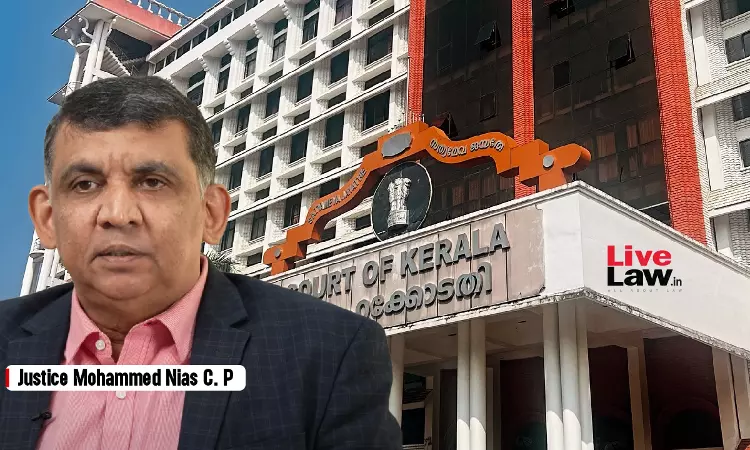- Home
- /
- High Courts
- /
- Kerala High Court
- /
- DRT Cannot Reject Consolidated Plea...
DRT Cannot Reject Consolidated Plea By Tenants Under SARFAESI Act: Kerala High Court
Mohd.Rehan Ali
1 Aug 2025 5:35 PM IST
The Kerala High Court has held that the Debts Recovery Tribunal (DRT) cannot reject a consolidated plea by tenants under the SARFAESI Act.The petition was filed, challenging an order passed by the registrar of the DRT 1, Ernakulam. By that order, it declined to register the application preferred by the petitioners against the notice of dispossession served by the Advocate Commissioner....
The Kerala High Court has held that the Debts Recovery Tribunal (DRT) cannot reject a consolidated plea by tenants under the SARFAESI Act.
The petition was filed, challenging an order passed by the registrar of the DRT 1, Ernakulam. By that order, it declined to register the application preferred by the petitioners against the notice of dispossession served by the Advocate Commissioner. The application was rejected, citing the reason that a consolidated securitisation application was filed by four tenants.
Justice Mohammed Nias C.P. noted that all the applicants were tenants and borrowers occupying the secured asset. The application was filed challenging the enforcement measures of the secured creditor u/s 17 of the SARFAESI Act. It further noted that the dismissal of the consolidated application on the sole ground that separate applications must be filed by each tenant is legally unsustainable.
The bench observed that the SARFAESI Act, 2002, provides a comprehensive framework for creditors to enforce security interests, and along with this, it also contains provisions to safeguard aggrieved parties, including tenants. Section 17(1) explicitly states that "any person (including borrower)" aggrieved by measures under Section 13(4) may apply to the Debts Recovery Tribunal (DRT). Here, the expression “any person” is broad and inclusive; it not only includes the borrower but also the third party.
It was further observed that Rule 13A of the Security Interest (Enforcement) Rules, 2002, read with Appendix X, provides the procedure for such applications. However, neither the Act nor the Rules prohibits multiple aggrieved persons from filing a consolidated application. The absence of such a prohibition suggests the conclusion that the legislature didn't intend to bar joint applications.
The bench discussed that this interpretation is in line with the general legal principle that procedural rules should facilitate, rather than obstruct, access to justice. It also noted that the grievances arise from a common cause of action, even if their lease agreements differ.
Citing the Supreme Court's ruling in the case of Mardia Chemicals Ltd. v. Union of India [(2004) 4 SCC 311], it was discussed that the tribunal should avoid hyper-technical objections that obstruct substantive justice. And the DRT's rejection contradicts the legislative intent behind the SARFAESI Act, whose purpose is to expedite the resolution process. Furthermore, the separate application would lead to repetitive pleadings and conflicting interim orders.
In view of the above discussion, the Hon'ble High Court set aside the impugned order and directed that the DRT shall consider the case of petitioners on merit.
Case Name: Moideen Koya and Ors. Vs. Pegasus Assets Reconstruction Co. Pvt. Ltd. and Anr.
Case No.: OP (DRT) NO. 287 OF 2024
Citation: 2025 LiveLaw (Ker) 351
Bench: Hon'ble Mr. Justice Mohammed Nias C.P.
Date: 04.06.2025
Click Here To Download Order/Judgement



